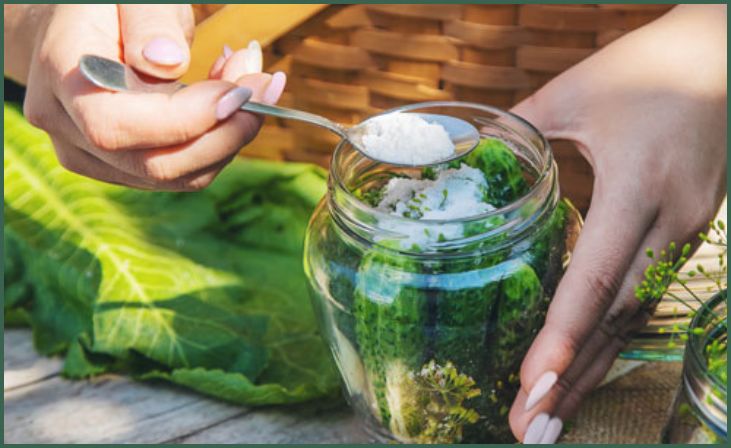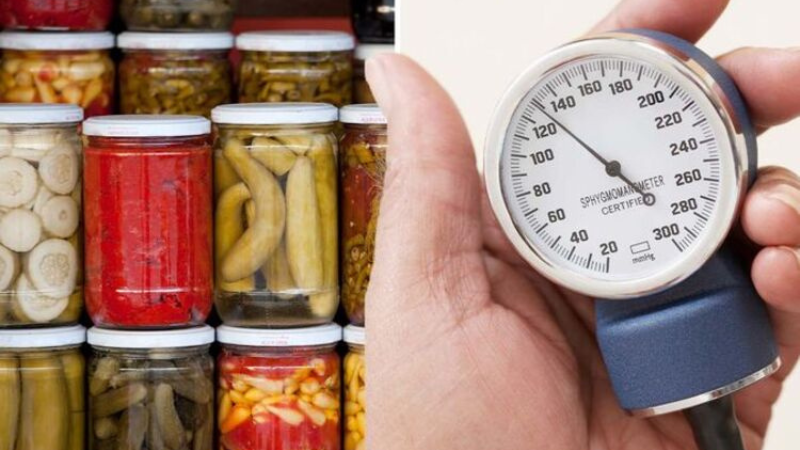Pickles are undoubtedly a favorite snack for many, known for their delightful crunch and tantalizing flavors. However, if you’re someone who’s concerned about their blood pressure, you might be wondering whether indulging in pickles is a wise choice. In this comprehensive article, we’re about to embark on a journey through the intriguing realm of pickles and their potential impact on high blood pressure.
In this detailed exploration, we’ll dissect the topic of ‘Are Pickles Bad for High Blood Pressure?’ to provide you with a profound understanding of the subject matter. Along the way, we’ll navigate through the intricate relationship between pickles and hypertension, drawing insights from experts in the field. Additionally, we’ll also address a series of frequently asked questions to ensure you have all the information you need.
So, without further ado, let’s delve into the world of pickles, and their effects on blood pressure and equip ourselves with the knowledge to make informed dietary choices.
Table of Contents
TogglePickles and High Blood Pressure
What Are Pickles?
Pickles, in their essence, are cucumbers that have undergone a transformation through the preservation process. They take a dip in a brine solution, often tantalizingly flavored with an array of spices and herbs. This results in a wide variety of pickles, including the classic dill pickles, the sweet and tangy bread and butter pickles, and the delightful sweet pickles.
Also Read:- Pickled Vegetables Made In The USA
The Role of Sodium

When it comes to the connection between pickles and high blood pressure, sodium takes center stage. Sodium, a key component of table salt, is a vital electrolyte for the body. However, an excessive intake of sodium, often found in many types of pickles, can be problematic for those concerned about their blood pressure. This high sodium content in pickles is a known risk factor for hypertension or high blood pressure, making it imperative to evaluate its impact on one’s diet.
Sodium Content in Pickles
Now, not all pickles are created equal in terms of their sodium content. Different types of pickles may possess varying levels of this essential but potentially harmful mineral. To make informed dietary choices, it’s essential to become a discerning reader of nutrition labels. These labels provide valuable insights into the sodium content of the pickles you’re considering, helping you better manage your sodium intake.
Don't just scroll, subscribe!
BuzzTrail's unique web-stories are the cure for boredom you've been waiting for.
Effect on Blood Pressure

The repercussions of high sodium content in pickles can be significant, primarily through water retention within the body. This water retention can lead to an increase in blood pressure, which is a significant concern for individuals with hypertension. Therefore, if you’re among those who need to manage their blood pressure levels, it’s advisable to exercise caution when indulging in high-sodium pickles.
Expert Insights
Expert Opinion
To offer you a more profound understanding of the intricate relationship between pickles and high blood pressure, we reached out to Dr. Sarah Williams, a renowned nutritionist with expertise in the field. Dr. Williams emphasized that pickles, with their delightful flavors, can indeed be a tempting treat. However, she strongly advocates for moderation, particularly for individuals dealing with hypertension. Her expert recommendation is to opt for low-sodium pickle options whenever possible, as these can be a more suitable choice for those aiming to keep their blood pressure in check.
Also Read:- Best Pickled Products In The USA
Dietary Guidelines
In the pursuit of managing high blood pressure, it’s worthwhile to heed the guidance of organizations like the American Heart Association. They recommend a daily sodium intake of less than 2,300 milligrams, which is roughly equivalent to a mere teaspoon of salt. Many pickle brands now recognize the importance of catering to health-conscious consumers and offer low-sodium or no-salt-added versions. These alternatives can be more aligned with dietary guidelines and are a wise choice for individuals with high blood pressure who still wish to enjoy the delightful tang of pickles.
Conclusion
In the world of dietary decisions, pickles can undoubtedly find a place on your plate, even if you’re one of the many individuals concerned about high blood pressure. The allure of these tangy, crunchy delights is undeniable, but as with any aspect of our diet, making informed choices is key.
In conclusion, the verdict is clear: pickles can indeed be enjoyed by individuals with high blood pressure. The key lies in making those informed choices that prioritize your health. Opt for low-sodium or no-salt-added pickles, consult with your healthcare provider, and embrace a well-balanced diet. By doing so, you not only satisfy your taste buds but also pave the way for a healthier, happier you. Your dietary choices, including those delightful pickles, can be a part of your journey towards maintaining optimal blood pressure and good health.
FAQs
Can I eat pickles if I have high blood pressure?
Can I eat pickles if I have high blood pressure?
Yes, you can eat pickles if you have high blood pressure, but it’s essential to choose low-sodium options and consume them in moderation.
Are there any benefits to eating pickles for hypertension?
Are there any benefits to eating pickles for hypertension?
While pickles are not a direct treatment for high blood pressure, they can be part of a balanced diet. Some people find pickles to be a satisfying, low-calorie snack.

